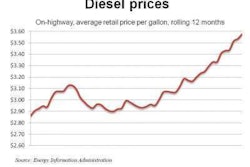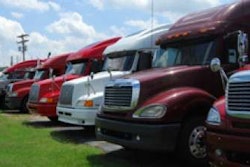Port of Oakland Executive Director Omar Benjamin recently participated in one of two listening sessions in California conducted by the U.S. House of Representatives Committee on Transportation and Infrastructure. Committee Chair Rep. John Mica (R-Fla.) is conducting a series of listening sessions around the country to gather public input on pending federal transportation legislation.
The California hearing was hosted by Subcommittee Chair Rep. Jeff Denham (R-Fresno) and joined by subcommittee Chair Rep. Bill Shuster (R-Pa.) and committee member Rep. Laura Richardson (D-Long Beach). Benjamin spoke as president of the California Association of Port Authorities and as one of the six port leaders involved with the United States West Coast Collaboration.
Benjamin’s comments focused on the need for a comprehensive national goods movement strategy; support for public private partnerships where the federal government is a partner; the need for streamlined environmental processes without compromising environmental protection; the need to explore “smart fixes” to federal funding sources like the federal Harbor Maintenance Tax Fund; and support for key California projects such as the development of the former Oakland Army Base into a Trade and Logistics Center.
Dick Coyle, president of West Sacramento, Calif.-based Devine Intermodal, said that Congress needs to invest in ports, which have become one of the biggest chokepoints in the nation’s transportation system. “We have terminals up and down the Central Valley of California, and our trucks haul processed food for export through the Port of Oakland,” Coyle said. “And we need improved access to those ports.”
Coyle, a member of the American Trucking Associations, said the Port of Oakland lies at the junction of three major interstates, as well as the Bay Bridge, and is only accessible for a limited time each day, “forcing trucks into the congestion, and trucks don’t want to share the road with rush-hour commuters.”
Coyle also said that in order to pay for needed infrastructure and capacity improvements, he and ATA favored increasing the fuel tax. “On funding, if we have to pick our poison, raising diesel taxes is the fairest way to generate more revenue, and it is certainly preferable to tolling,” he said.
After the federal listening session, Benjamin met with key Central Valley agricultural leaders and business partners to discuss how the port can increase agricultural exports through Oakland. In addition to creating jobs at the port and in the region, the Port of Oakland’s export promotion addresses the U.S. government goal of doubling export volumes by 2015 through President Barack Obama’s National Export Initiative.












